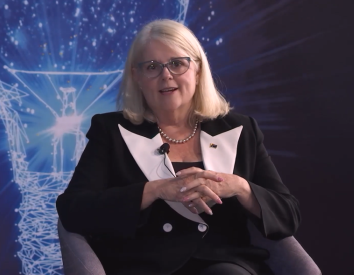Travel exemption decisions are based on the personal opinion of the ABF Commissioner with no adherence to migration laws, writes Lina Li.
SINCE 20 MARCH 2020, travel restrictions have been in place prohibiting travel into Australia of all foreign nationals, unless exempt. The Australian Border Force (ABF) Commissioner, Michael Outram, has been authorised by the Prime Minister through the National Security Committee to consider requests for travel exemptions on a case-by-case basis. Mr Outram has issued ‘Commissioner’s Guidelines’ for his delegates to make decisions.
When the Government makes a decision on visa applications according to the migration laws, most decisions are reviewable by another government agency. For instance, if a visa is refused, people have the option to appeal that decision with a tribunal and courts. The Government also needs to give detailed reasons to justify its decisions.
But when the ABF Commissioner makes a decision on a travel exemption request, he does not give any detailed reasons at all. Travel exemption decisions are not reviewable by any other government agency. Due to this lack of accountability, Mr Outram has been making inconsistent and poor-quality decisions since 20 March 2020 without having to face any consequences. No one is allowed to disagree with the Commissioner.
What’s worse, Mr Outram has been influencing migration outcome through travel exemption decisions. There is nothing in the migration laws that require a person to be exempt from travel restrictions to qualify for a visa. But the Government is not processing visas submitted by people who are not exempt, essentially making a travel exemption a criterion for all visas. In other words, it’s up to the ABF Commissioner if one is eligible for a visa, not the migration laws entirely. The Commissioner’s personal opinion is above the migration laws.
The ‘Commissioner’s Guidelines’ outline that people who provide ‘essential goods and services’ are exempt from travel restrictions. But they do not define what ‘essential goods and services’ include. The Commissioner is free to decide based on his opinion. Many businesses are classified as an essential service by states and territories, but when they request a travel exemption for their employees, the Commissioner refuses it. Michael Outram’s personal opinion overrides any states and territories laws and rules.
The ‘Commissioner’s Guidelines’ provide that people who bring strong economic benefits to Australia are exempt from travel restrictions. But they do not define what strong economic benefits refer to. The Commissioner has complete discretion in making decisions.
Australia has free trade agreements with several countries. These trade agreements were negotiated because of the strong economic benefits to Australia. Australia has trade obligations to allow certain people to travel here under these agreements. States and territories support these trade agreements, too. Again, the Commissioner has been refusing their requests.
Clearly, the Commissioner’s personal opinion overrules any trade agreements signed by the Prime Minister. It also discounts any support from states and territories.
The Migration Institute of Australia wrote to the ABF Commissioner on 27 June 2021, raising significant concerns regarding COVID-19 travel restrictions. The Commissioner has not responded to any of the concerns raised.
People have been going to their local MPs and reporters to complain about travel exemption decisions. Some have been complaining to the Commonwealth Ombudsman. The Commissioner has not responded to any of these either.
The ABF Commissioner does not have to answer to anyone.
Lina Li works as an immigration consultant in the immigration industry. She has extensive experience in the corporate migration sector and works closely with government agencies in making changes to the current migration program. You can follow Lina on Twitter @Lina52412342.
 This work is licensed under a Creative Commons Attribution-NonCommercial-NoDerivs 3.0 Australia License
This work is licensed under a Creative Commons Attribution-NonCommercial-NoDerivs 3.0 Australia License
Support independent journalism Subscribe to IA.













